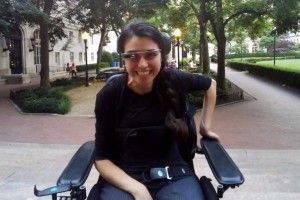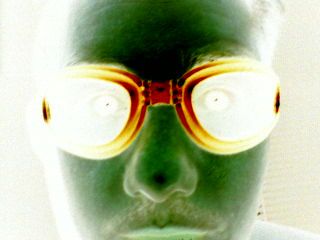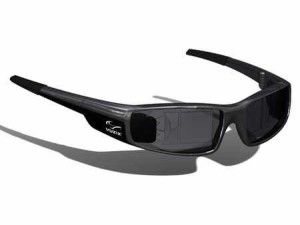While the “Ice Bucket Challenge” raised millions to fuel research toward a cure for
amyotrophic lateral sclerosis (ALS), there are a number of assistive technologies already at work to help those currently affected by the disease. According to Alisa Brownlee, a clinical manager for the ALS Association, more assistive technologies and brain-computer-interfaces are on the way. At present, the largest hurdle is access.
Brownlee noted that the loss of communication is often the hardest part of ALS for someone to endure. As ALS is a progressive disease, there are several forms of assistive technology that are used based on a given patient’s physical status. Each form of that technology will work for awhile, but then patients will have to move on to something else as the disease progresses, she says.
Using computer access as one way to help maintain an ALS patient’s communication skills, ALS patients can transition to a track-ball mouse and on-screen keyboard in lieu of a standard computer mouse. From there, a person can use a head-mount, eye-gaze system, and even a tablet computer with a switch scanner.
“It depends on which type of device the individual wants and their physical limitations when we are getting involved with them. They can go from the very simple to the very complex,” Brownlee said. “Technology is wonderful, but it’s not for everyone. So it’s important to involve the person, understand their personality and understand their coping mechanism dealing with the loss of communication.”
While it’s a significant improvement over what was available 10 or 20 years ago, this assistive technology has its limitations, Brownlee said. A system which requires the user to dwell over a letter to type, such as a head mouse, is pretty much limited to five to seven words a minute, which can be frustrating when the average adult speaks about 150 to 200 words a minute. Further, eye-gaze systems can’t be used in natural light by those with underlying eye issues, such as users with tri-focals, torn retinas, or pupils that are too dark; plus, they can be difficult to calibrate.
“That’s the one thing I hear from our caregivers all the time, ‘Hey we can’t get the thing to calibrate!’” she said. “It has to be 23 inches away from the user and, if your positioning is anything less than that, it gets real difficult. It’s just real frustrating.”
Looking to the future of assistive technologies, wearable technology such as Google Glass is already showing great promise in helping those with ALS and other disabilities communicate, Brownlee said. The Google Glass headset is easy to calibrate, can be used in any light, and can be accessed by its user whether they’re sitting up or laying in bed, she said.
Costing a fraction of a standard $15,000 eye-gaze system, Google Glass is more affordable option, Brownlee added. Though there are still some user interface problems that need to be addressed, new applications to make Google Glass even more accessible to those with disabilities are in the works..
“A colleague of mine is working on how to drive a powered wheelchair through Google Glass. Because ALS is a progressive disease, we have a lot of people who can not drive their wheelchairs anymore because they’ve lost the function in their hands,” Brownlee said. “If this comes to fruition, you could be able to drive your wheelchair through Glass. And this could open up a whole world for many people with disabilities. It could also make a huge financial burden much easier, so people with disabilities could afford technology, because right now, it’s unaffordable.”




